Business & Management
Mak-RIF Plugs Tax Education Gaps in Uganda’s Informal Sector
Published
5 years agoon
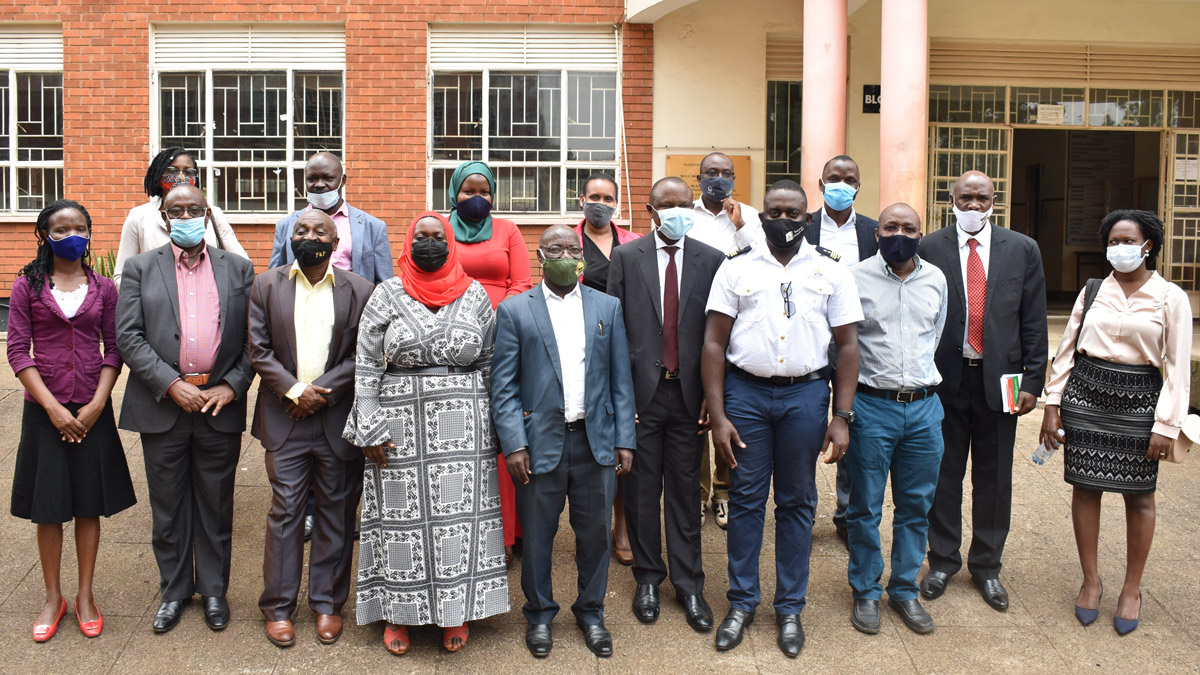
According to statistics from the Uganda Revenue Authority (URA) Annual Data Book 2018/19, at 12.44%, Uganda’s average tax to GDP ratio over the last five years is one of the lowest in the region, and far below the sub-Saharan Africa average of 16%. Simply put, the total tax collected by URA has on average over the past five years accounted for only 12.44% of the size of Uganda’s economy. Comparatively, Kenya, Tanzania, Rwanda and Burundi recorded average tax to GDP ratios of 16.10%, 12.83%, 15.80% and 13.55% respectively over the same period.
This should not come as a surprise, given that 2016 statistics from the Uganda Bureau of Statistics (UBOS) indicated that approximately 98% of Uganda’s population of working age (14-64) were engaged in the informal sector. The title of a 2017 article published by the Economic Policy Research Centre (EPRC) based on the same statistics put it aptly, “Informality Growing Faster than Formality”.
Expanding the tax base by tapping into semi-formal economic activities is going to be one of the major focus areas in the Third National Development Plan (NDPIII) 2020/21-2024/25. It is against this background that researchers in the College of Business and Management Sciences (CoBAMS) led by the Principal, Dr. Eria Hisali conducted a study that sought to understand which gaps exist in tax education and how these gaps can be packaged into improving compliance and subsequently broadening the tax base in Uganda.
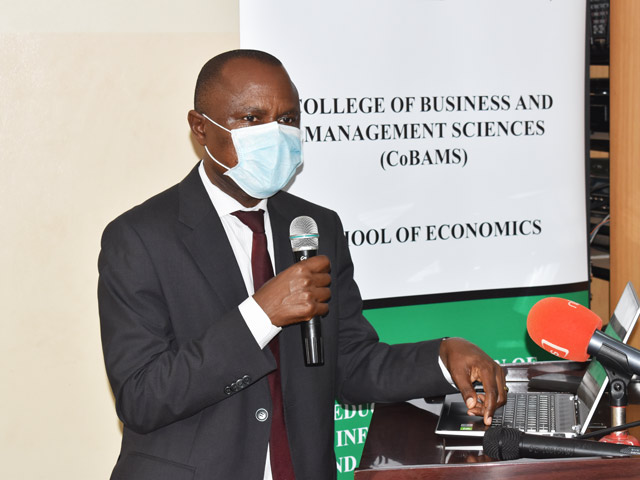
Funded by the Government of Uganda through the Makerere University Research and Innovations Fund (Mak-RIF) the research undertaken in 2020 targeted over 500 respondents with particular focus on the informal sector. In addition to the Principal Investigator (PI) Dr. Eria Hisali, the research team consisted of Dr. Ismail Kintu, Dr. Fred Bateganya, Ms. Marion Atukunda, Ms. Winfred Nalwoga, Mr. Nicholas Musoke, Mr. Patrick Lumala and Dr. Kagarura Willy.
Speaking at the research dissemination workshop held on 10th February 2021 in the School of Business Conference Room, Dr. Hisali shared that “The research advocates for a comprehensive review of Uganda Revenue Authority’s tax education programme with focus on linking tax collection to better service delivery,”
The research team’s interaction with members of the informal sector revealed that tax education being provided is not well suited to the informal sector. “For instance, tax exhibitions, messages on websites and brochures do not provide the best approach to reach out to the informal sector. The informal sector needs more engagement with emphasis on field visits and face-to-face interaction,” explained Dr. Hisali.
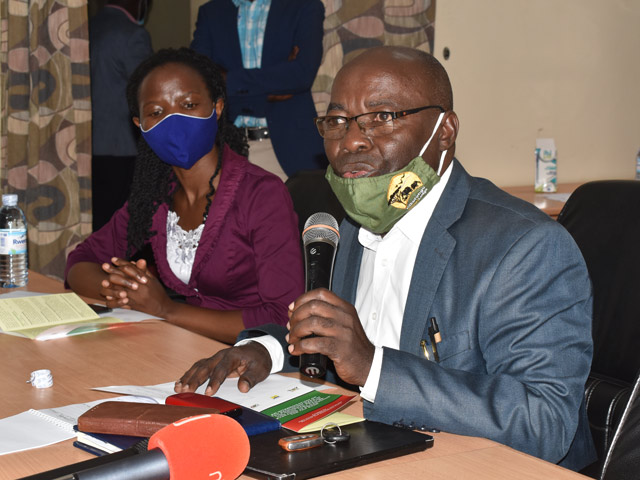
The Principal Investigator however pointed to some quick wins that could be adopted as URA evaluates and updates its tax education programme. He noted that approximately UGX 6 Trillion had been allocated to livelihood programmes by the Government of Uganda between the 2018/19 and current financial years. “How can tax education be included as part of the package that these Government livelihood programmes contain? I think we could see some quick wins because as recipients benefit from livelihood programmes, they could be asked to register as tax payers.”
Findings shared by the research team further revealed a limited coverage of tax education. Whereas 53% had been told or heard about the importance of paying taxes, only 40% had received education on how to register for taxes while only 38% had heard about filing tax returns. Furthermore, only 32% had received tax education on fines and penalties, 29% on the benefits of paying taxes and only 16% on audits and assessments.
Nevertheless, some of the registered respondents who admitted to not paying taxes cited low tax morale as well as poor service delivery and unfairness as reasons for their noncompliance. Researchers further took note of the limited personal touch with potential taxpayers in the informal sector, disconnect between the current taxpayer education modality and unique features of the informal sector, as well as the cost implications and overly technical language in existing modalities as some of the reasons for nonpayment of taxes.
The Study concluded that:
- Majority of the respondents had limited or no knowledge about the Tax Identification Number (TIN), a critical requirement for tax payment. More than half of respondents did not know how to acquire a TIN.
- Actors in the informal sector cannot differentiate between taxes paid to URA and those paid to local governments and other bodies that bring together operators.
- Most respondents did not know how to formalize their business/enterprise, another important factor for tax registration.
- There exists some form of registration of informal businesses/enterprises upon which formalization can build.
- The URA tax education campaigns messaging and targeting has left out some potential tax payers. Messaging and targeting of tax education is key to realizing intended results of growing the tax base and ultimately the tax revenues.
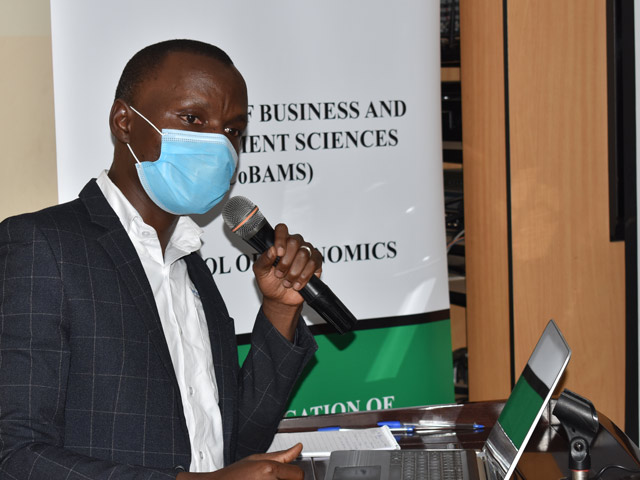
The Research Dissemination attracted participants from URA, Kampala City Traders Association (KACITA), Academia, Private Sector, Civil Society, the Media, Mak-RIF Grants Management Committee (GMC) as well as staff and students from Makerere University.
Painting a picture on the new ideas and innovations to foster a taxpaying culture through tax education, URA’s Mr. Nicholas Musoke who represented the Assistant Commissioner Research Planning and Development-Ms. Milly Nalukwago, noted that whereas Uganda’s population is approximately 45.7million, the taxpayer register stands at only 1.59million. Approximately 953,000 of those registered are active taxpayers, while 906 URA clients pay 80% of the tax. The informal sector currently contributes less than 1% (0.03%) of tax collected.
To help achieve this, URA plans to roll out the AEN strategy. AEN stands for Awareness, Empower and Nurture. Under Awareness, URA intends to intentionally engage the public on tax laws, roles, rights, obligations and opportunities relating to tax. Under Empower, URA will guide taxpayers on their rights as well as how and when to fulfil their tax obligations, while under Nurture, the Authority will set up and support mechanisms to cultivate and maintain a taxpaying culture.
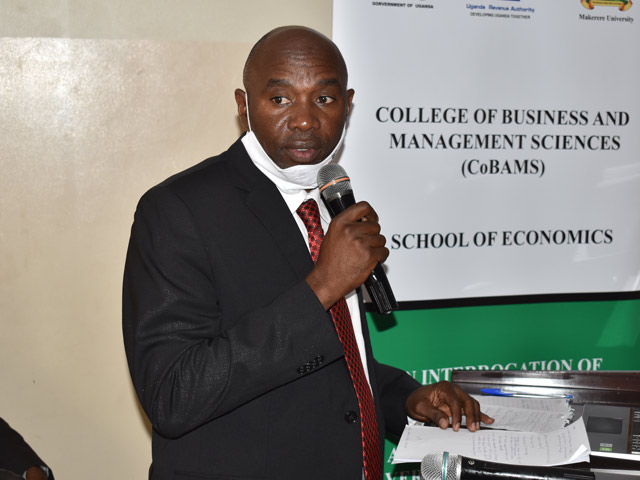
Dr. John Mutenyo who represented the Chairperson of MakRIF GMC- Prof. William Bazeyo in his address commended the Government of Uganda for prioritizing research at Makerere University. “In phase One of Mak-RIF, the Government committed UGX 30billion and this was one of the research projects that
was funded under that phase. To date, over 500 competitive research grants have been supported.”
Prof. Bazeyo congratulated Dr. Hisali and the entire research team for undertaking a study geared towards strengthening the implementation of NDPIII and supporting the development of Uganda. “Most importantly, I would like to thank Dr. Hisali and the team for having a collaborative study that involved the key stakeholders such as URA. These are the stakeholders that are going to make it easy to buy into and implement the outcomes of this research.”
Commenting on the findings, the other stakeholders at the research dissemination workshop pointed out the need to embark on trust building programmes with the taxpayer. They equally emphasised the need to consider reducing the load on the tax payer. The taxpayer in Uganda is subject to taxes such as;
Value Added Tax (VAT), Pay As You Earn (PAYE), Customs, Demurrage, Income Tax, Withholding Tax, Excise Duty, Over-The-Top (OTT)/Social Media Tax among others.
Article by Public Relations Office

You may like
-


Call for Applications: Diploma Holders under Government Sponsorship 2026/2027
-


Makerere Graduation Underscores Investment in Africa’s Public Health Capacity
-


Botswana Delegation Visits Makerere’s Public Investment Management Centre to Study Sustainable Training Model
-


Makerere University commemorates 13 transformative years of partnership with Mastercard Foundation
-


200 UVTAB students graduate: CEES emphasizes Skills, Integrity and Community Impact
-
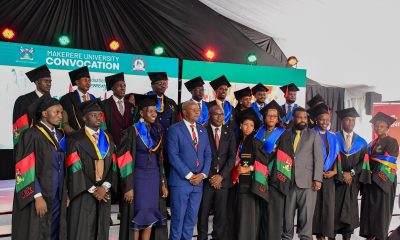

76th Graduation Ceremony: CoBAMS Staff and Graduates Win Excellence Awards
Business & Management
Thirty Public Officers Certified in Integrated Regulatory Cost-Benefit Analysis
Published
2 days agoon
March 3, 2026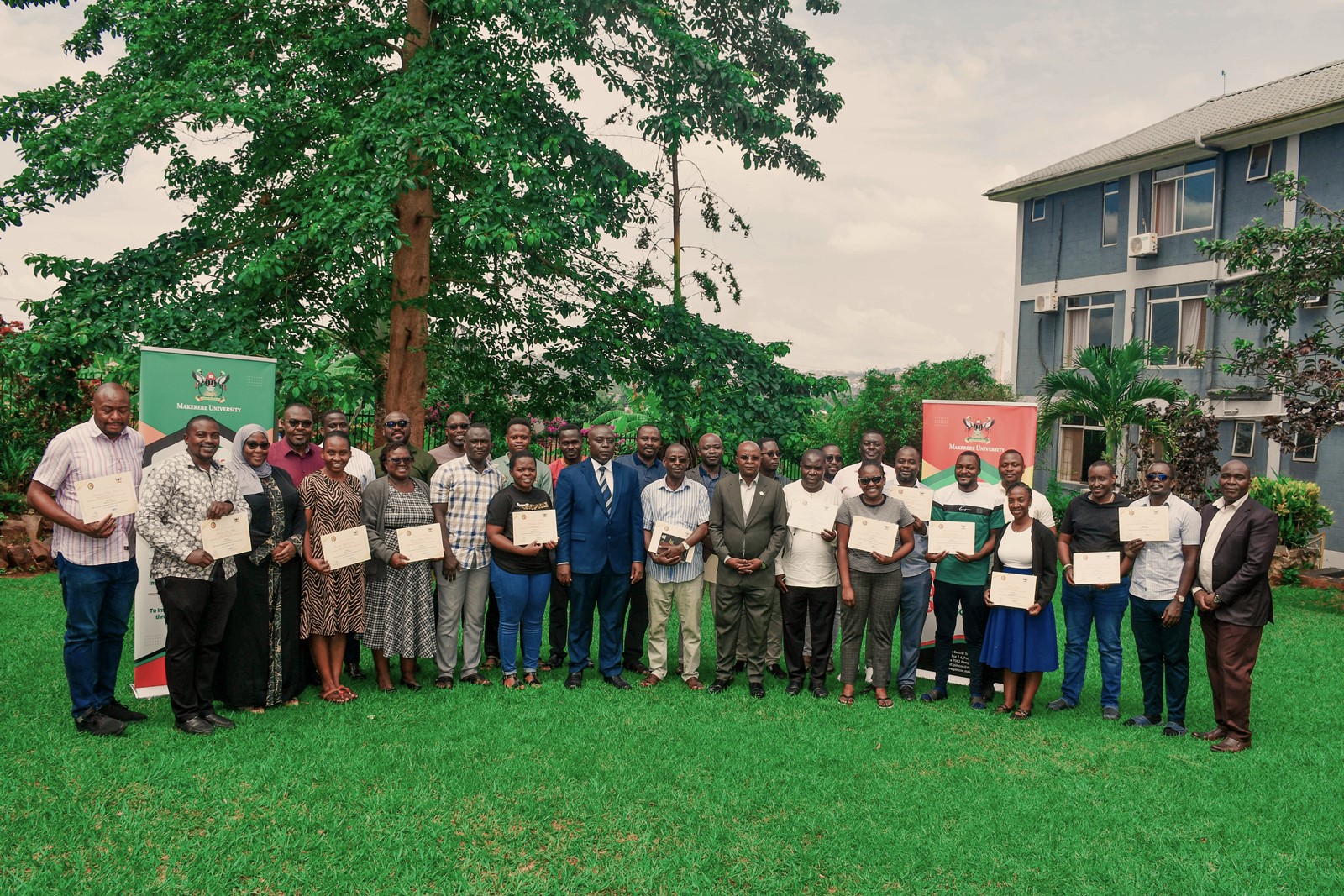
Thirty public officers from various Ministries, Departments and Agencies (MDAs) have successfully completed a two-week intensive training in Integrated Regulatory Cost-Benefit Analysis (IRCBA), culminating in the award of certificates at a closing ceremony held on 27th February 2026 at the Pearl on the Nile Hotel in Jinja.
The training was jointly organized by the Public Investment Management Centre of Excellence at Makerere University and the Ministry of Finance, Planning and Economic Development (MoFPED), in collaboration with the Infrastructure and Social Services Department (ISSD) and the National Planning Authority (NPA). It focused on operationalizing the Revised Guidelines for the Issuance of Certificates of Financial Implication (CFIs), which came into effect on 1st July 2025.
A Strategic Reform for Fiscal Credibility
In closing remarks delivered on by Commissioner Paul Patrick Mwanja behalf of the Permanent Secretary/Secretary to the Treasury, participants were commended for undertaking the training during a demanding budget cycle, when many MDAs are simultaneously preparing the FY 2026/27 Budget, executing the FY 2025/26 Budget, and implementing the National Development Plan IV and the Tenfold Growth Strategy.
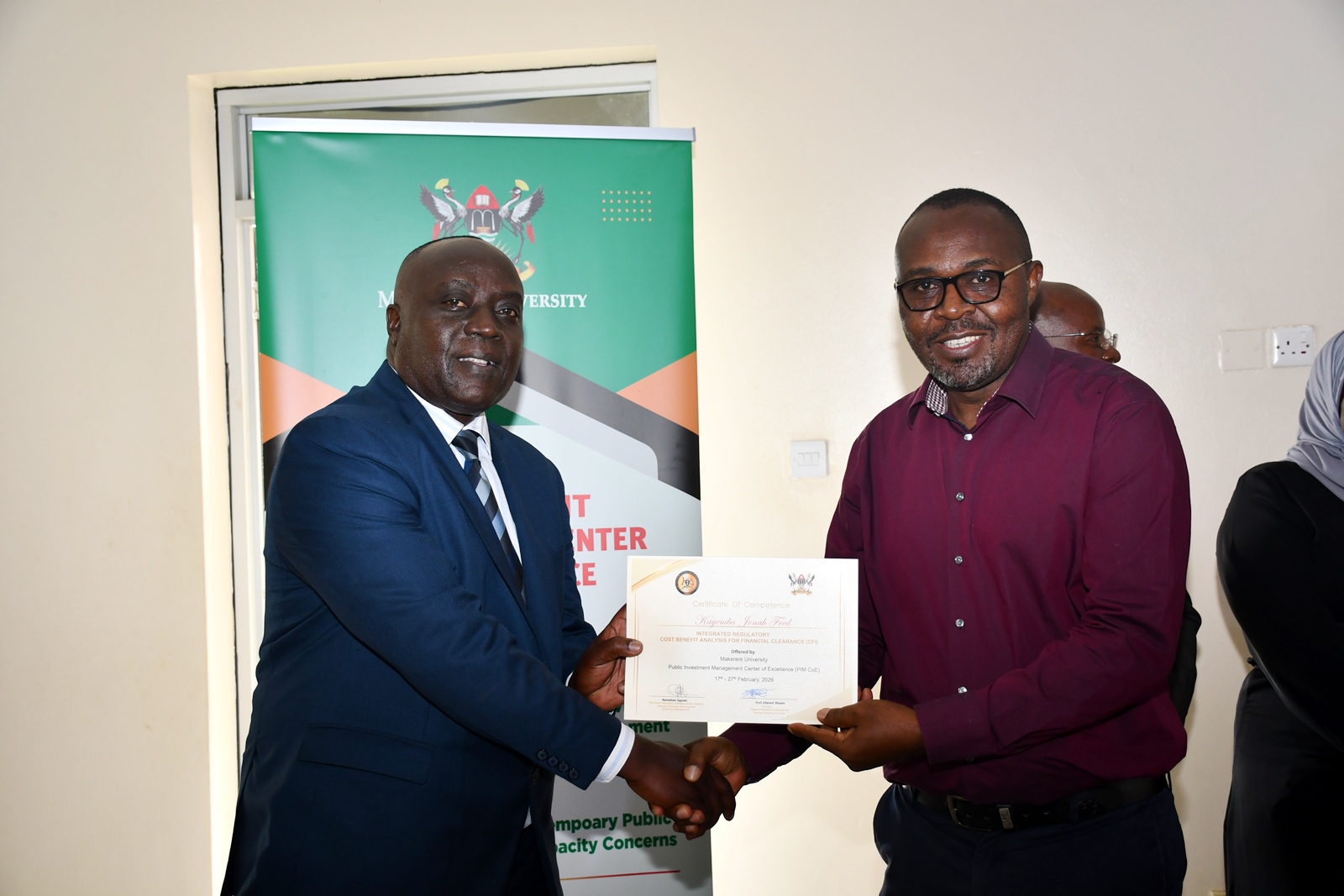
The PS/ST emphasized that the revised Guidelines mark a significant shift toward a more transparent, data-driven, consultative, and analytically rigorous approach to evaluating policy and legislative proposals. Participants were equipped to assess fiscal implications, evaluate economic and socio-economic impacts, analyze distributional effects, and address uncertainty using structured analytical tools.
They were reminded that training alone is not sufficient, the real test lies in consistent application. As members of the third cohort, they were challenged to serve as reform ambassadors, championing evidence-based policymaking and strengthening analytical standards across government.
Bridging Academia and Public Service
Delivering the official closing remarks, the Director of the PIM Centre of Excellence, Prof. Edward Bbaale, commended participants for their active engagement and unwavering commitment throughout the training.
He described the programme as both timely and strategic, designed to equip officers with practical tools to prepare robust Statements of Financial Implication (SFIs) that support credible issuance of CFIs. He noted that strong financial analysis enhances fiscal discipline, policy coherence, and the overall quality of legislation and public policy in Uganda.
Prof. Bbaale underscored the longstanding partnership between Makerere University and the Ministry of Finance, highlighting how it continues to bridge academia and public service by combining analytical rigor with practical policy experience. He emphasized that the collaborative model — bringing together faculty from the College of Business and Management Sciences and practitioners from Government, reflects the core vision of the PIM Centre of Excellence: strengthening national systems through evidence-based policymaking.
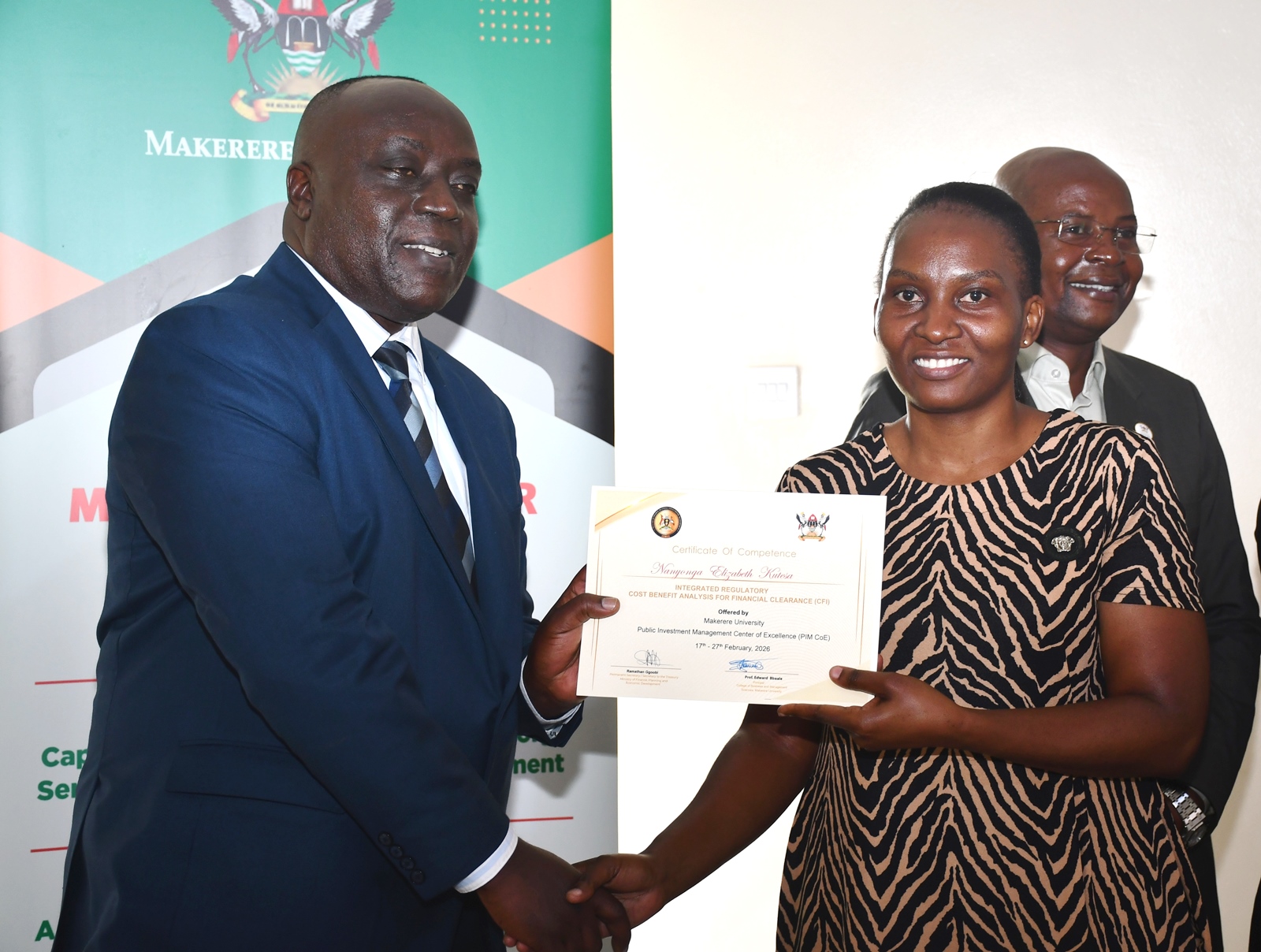
During the two weeks, participants gained hands-on experience in applying cost-benefit analysis across four critical dimensions: budgetary analysis, socio-economic analysis, distributive impacts, and risk assessment. Prof. Bbaale encouraged them to return to their institutions as agents of transformation, improving evaluation frameworks, strengthening regulatory decisions, and ensuring that public interventions deliver value for money and long-term development impact.
He also reaffirmed the Centre’s broader mandate beyond training, noting its recent support to the revision of Development Committee Guidelines, assessment of public investment performance since NDP I, and hosting of the Second Public Investment Management Conference in August 2025.”
Building from “Zero Kilometre”
Earlier, the Manager of the PIM Centre of Excellence highlighted the practical approach adopted during the training. Participants began with blank Excel sheets and built analytical models from scratch, likened to the engineering concept of starting at “zero kilometre,” where construction begins from the very starting point and progresses step by step.
The interactive sessions enabled participants from diverse disciplines, including policy analysts, planners and statisticians, to interrogate assumptions, refine costing approaches, and debate implementation and enforcement frameworks. Their sector-specific insights enriched the learning process and strengthened the analytical models developed.
The Manager noted that excellence is not about knowing everything, but about bringing together the right expertise. Facilitators from MoFPED, NPA, the Office of the President, and Makerere University ensured that theory remained grounded in practical government realities.
Participants Applaud Practical and Engaging Sessions
Speaking on behalf of the cohort, a participant described the training as highly engaging and transformative. The combination of theory and practical application, coupled with patient facilitation, allowed officers from varied professional backgrounds to learn from one another.
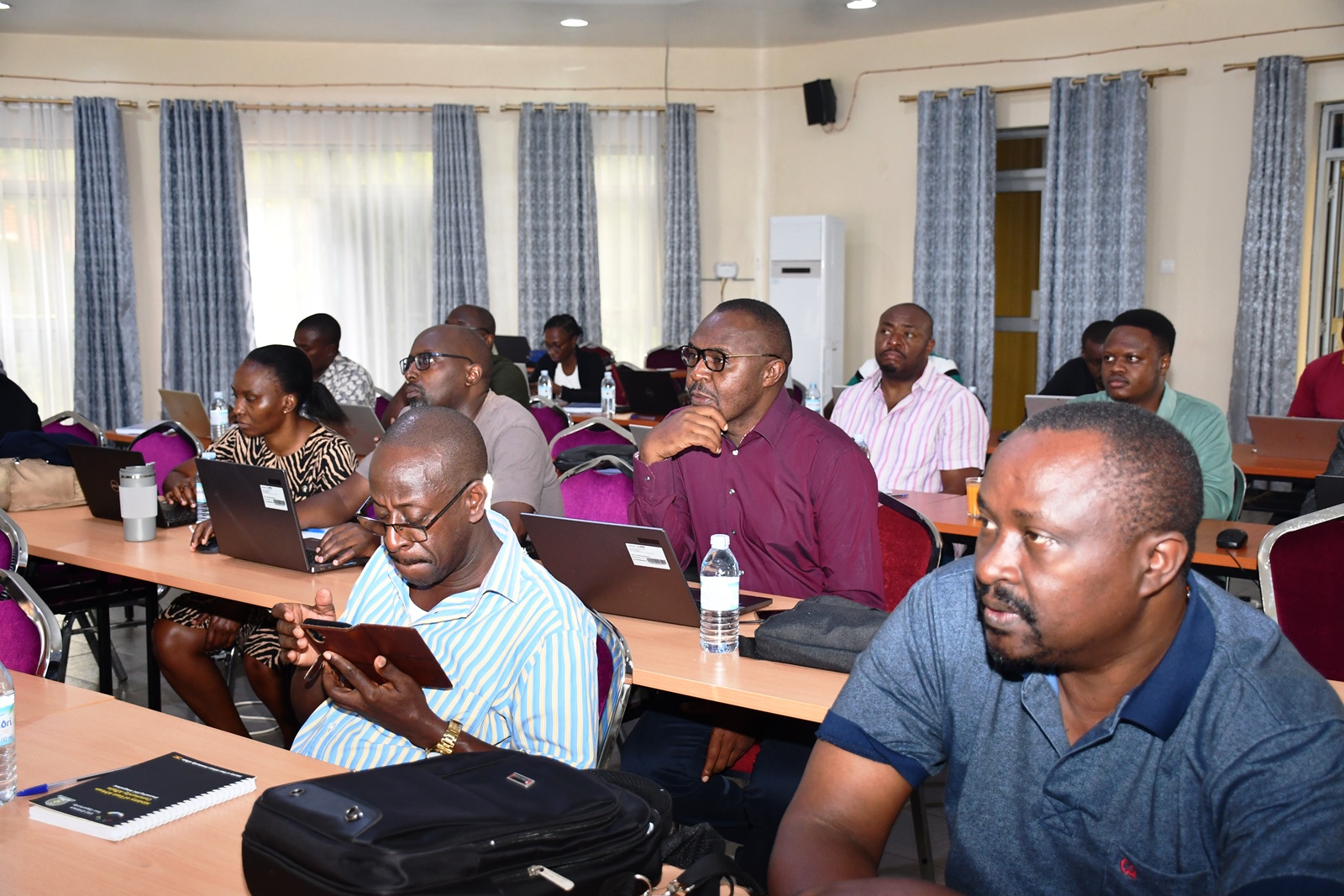
The participant highlighted the final day’s discussions as the most impactful, expressing confidence that the knowledge gained would enhance policy analysis and improve the quality of programmes and projects across MDAs.
Certificates Awarded
The ceremony concluded with the award of certificates to all 30 participants in recognition of their successful completion of the IRCBA training. The certification marks another milestone in Government’s effort to build a critical mass of experts capable of institutionalizing rigorous financial and economic analysis in public policy processes.
As the workshop was formally declared closed, participants were encouraged to apply their newly acquired skills consistently, mentor colleagues, and contribute to strengthening fiscal governance across Government.
The PIM Centre of Excellence reaffirmed its commitment to continuous research, policy advisory support, and capacity building as Uganda advances toward more credible, transparent, and sustainable public decision-making.
Business & Management
Botswana Delegation Visits Makerere’s Public Investment Management Centre to Study Sustainable Training Model
Published
2 days agoon
March 3, 2026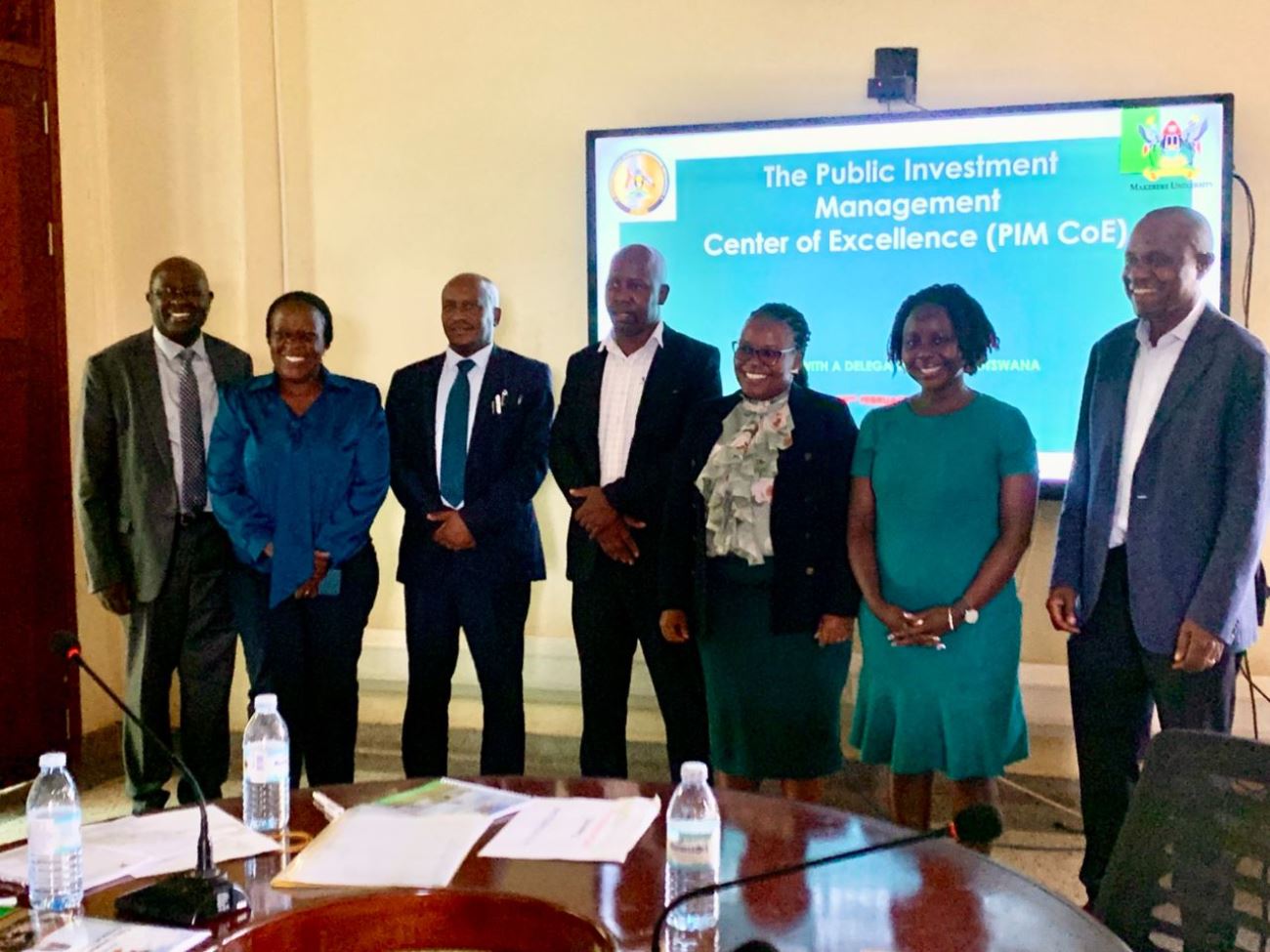
Kampala, Uganda – 25 February 2026
A delegation from Botswana’s public investments sector on 25th February 2026 visited Makerere University’s Public Investment Management Centre of Excellence to benchmark its sustainable training model and draw lessons from Uganda’s well-established Public Investment Management (PIM) framework.
The team, composed of specialists in public investments, is exploring ways to strengthen capacity within Botswana’s public sector institutions. The delegation underscored the importance of structured and sustainable capacity-building programmes, noting that effective public investment management is central to driving national development and ensuring value for money in public projects.
During the engagement, the Botswana team sought to understand the Centre’s operational model, including how it designs and delivers training programmes that remain impactful over time. Particular interest was placed on the Centre’s approach to sustainable training delivery, the documentation of challenges and successes, and mechanisms used to ensure that public officers acquire long-term, practical skills that translate into improved project planning, appraisal, and implementation.
The visiting delegation commended Uganda’s commitment to institutionalizing PIM training and emphasized that cross-country learning is vital for strengthening public financial management systems across Africa. They observed that Uganda’s experience offers practical insights into building a resilient and responsive PIM framework anchored in continuous professional development.
As part of their recommendations, the delegation proposed the introduction of a hybrid training model to enhance accessibility for international participants. Under this approach, the theoretical components of PIM courses would be delivered online, allowing participants to engage remotely from Botswana and other countries. This would then be followed by in-person sessions in Uganda focused on hands-on, experiential learning at the Centre.
According to the delegation, such a model would significantly reduce travel costs and time while preserving the value of face-to-face practical training. The hybrid approach would also provide flexibility for busy public officers, enabling them to balance professional responsibilities with structured learning.
The visit further strengthened regional collaboration and reaffirmed the role of Uganda’s Public Investment Management Centre of Excellence as a hub for capacity development in public investment management across the continent.
Business & Management
76th Graduation Ceremony: CoBAMS Staff and Graduates Win Excellence Awards
Published
7 days agoon
February 26, 2026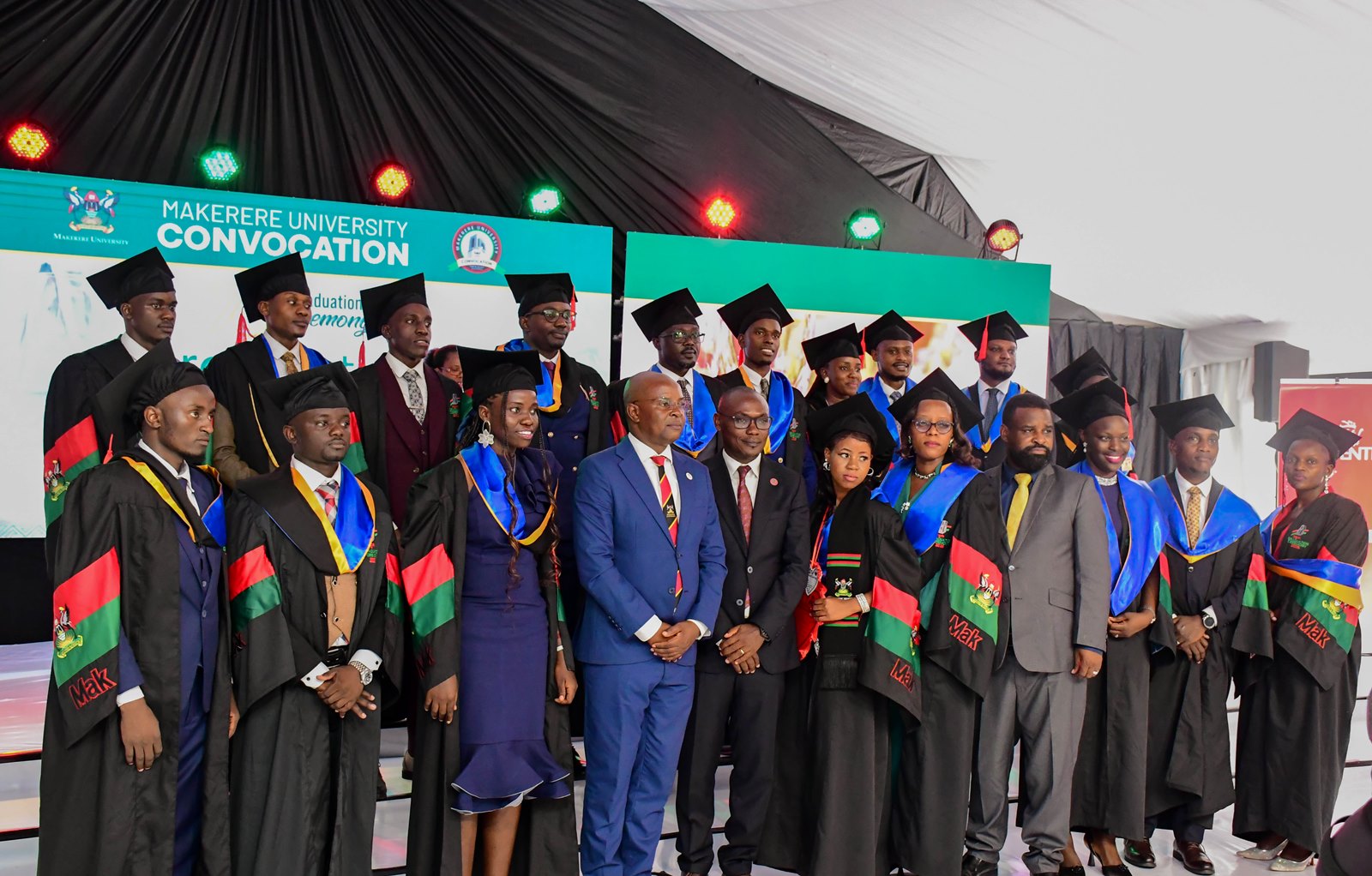
26th February 2026-During the 76th Graduation Ceremony (24th to 27th February 2026), Makerere University invoked its tradition of recognizing outstanding performance and excellence in academics, research, teaching, knowledge transfer, publication and authorship.
The College of Business and Management Sciences (CoBAMS) presented students for graduation on the third day of the 76th graduation ceremony. Consequently, on 26th February 2026, entities within the University namely the Office of the Vice Chancellor, Makerere University Press, the Directorate of Research, Innovations and Partnerships, Directorate of Graduate Training, and partners including the Economic Policy and Research Centre (EPRC), Association of Chartered Certified Accountants (ACCA Uganda), Prudential Uganda, lined up awards, to celebrate achievements and excellence.
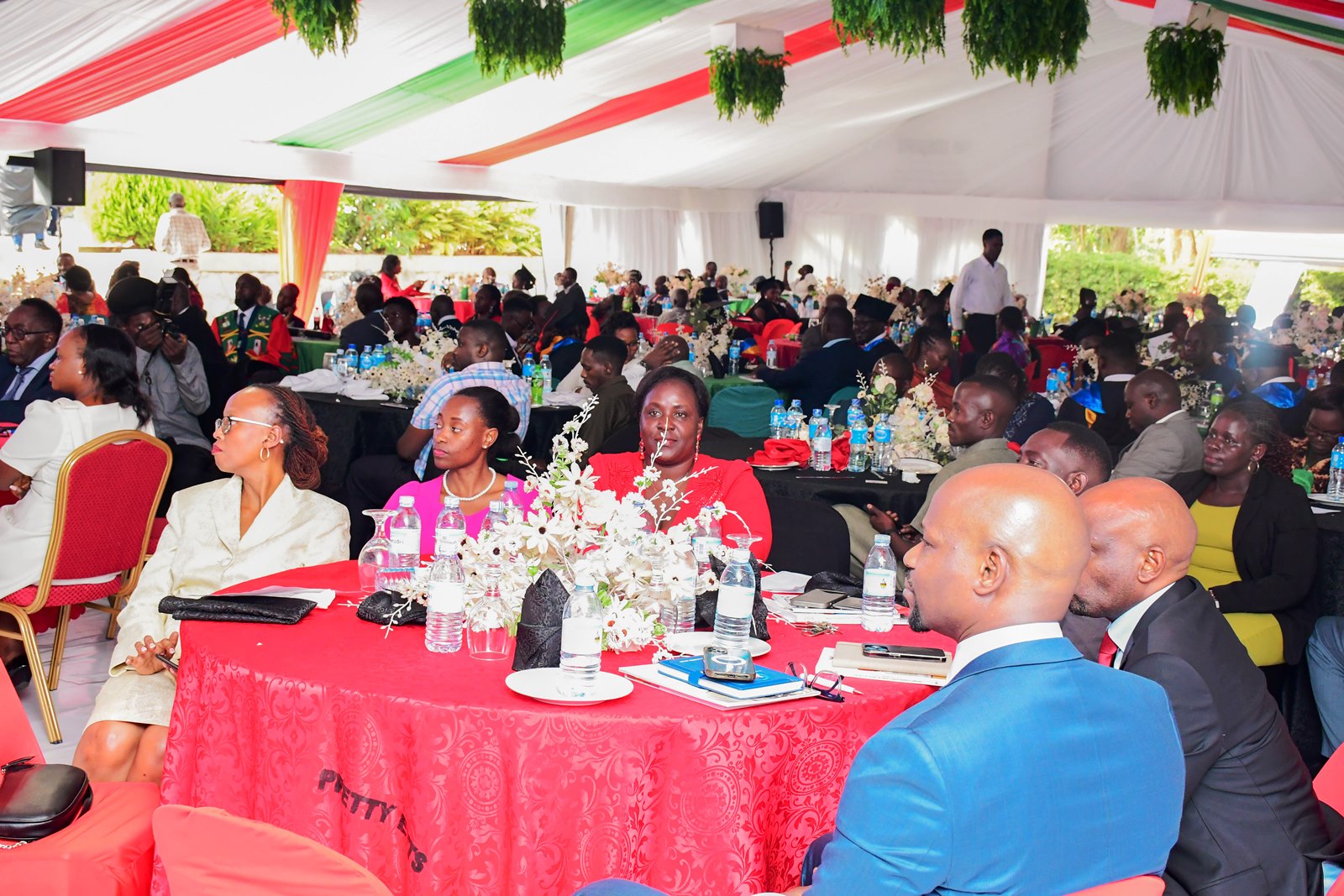
The award ceremony brought onboard invited guests from public and private sectors, the business community, Makerere University officials, faculty members, alumni, industry partners and graduating students. The awards were presented during the Makerere University Convocation Graduation Luncheon.
The ceremony provided a platform for celebrating academic excellence, strengthening alumni engagement, and reinforcing collaboration between the University and its professional and industry partners.
2026 Research Excellence Awards
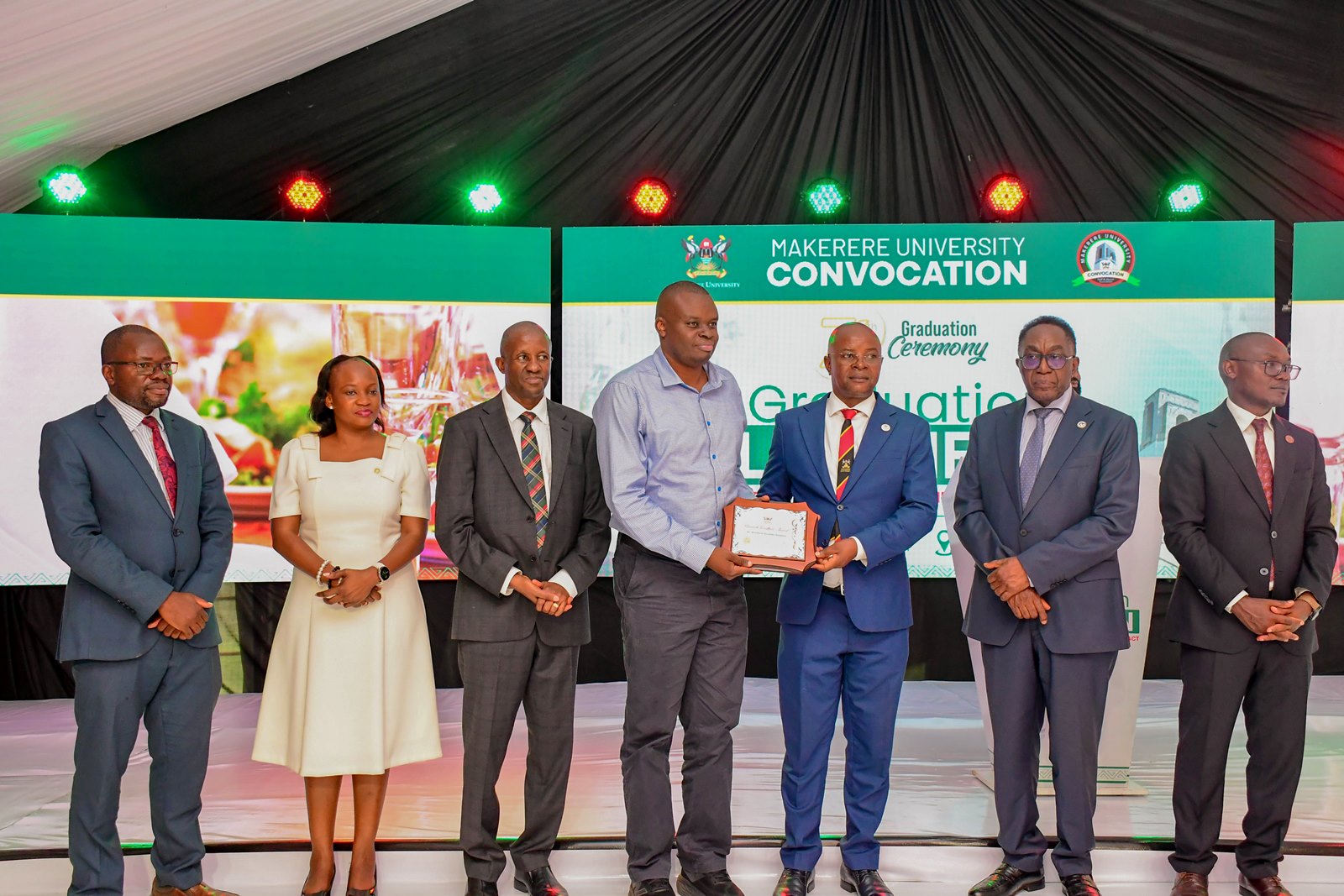
The Vice Chancellor’s Research Excellence Awards were presented to college members whose research output and scholarly contributions have significantly advanced knowledge and strengthened the College’s academic profile.
At CoBAMS, the recipients of the Vice Chancellor’s Research Excellence Awards in the various categories included the following:
- Associate Professor Faisal Buyinza, Overall top research award
- Associate Professor Faisal Buyinza, Senior-Career Research award
- Stephen Ojiambo Wandera, Mid-Career Research award
- Ruth Mpirirwe and Richard Ssempala, Early-Career Research award
The awardees were honored for their exceptional research productivity, impactful publications, and contribution to building a vibrant research culture.
The awards underscore Makerere University’s emphasis on high-quality research that addresses national and global development challenges.
Recognition of Book Author
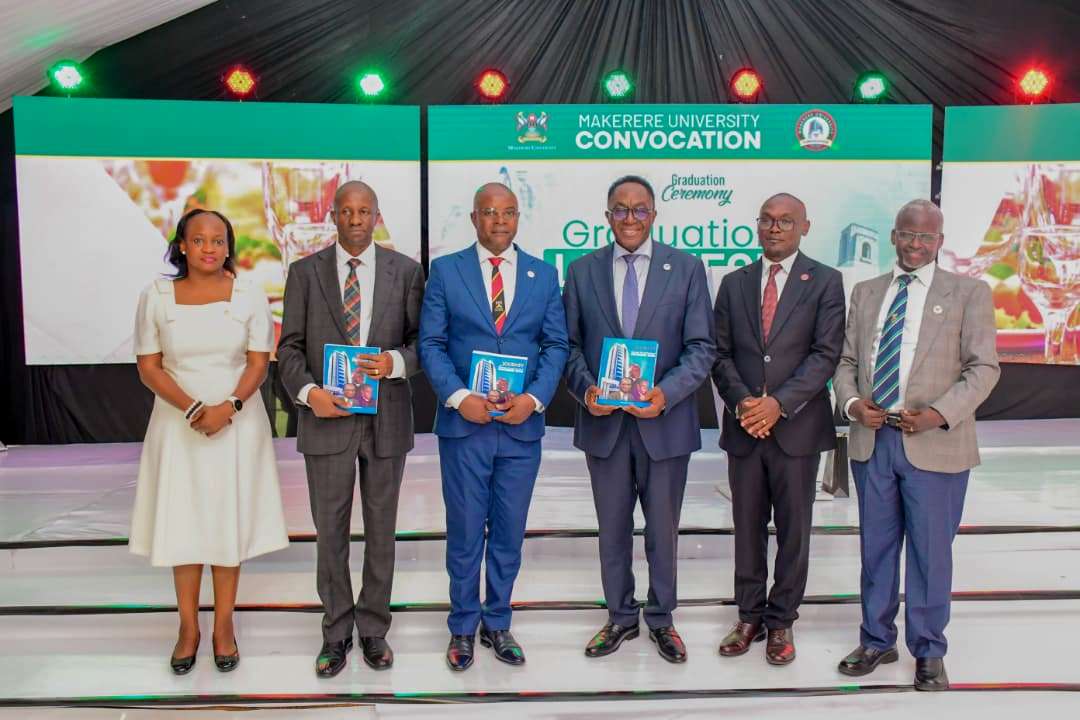
Prof. John Ddumba-Ssentamu, a renowned economist, administrator, former Vice Chancellor of Makerere University, and the pioneer Principal of the College of Business and Management Sciences, was honoured for his contribution to scholarship and knowledge transfer through authorship.
Published by Makerere University Press, Prof. Ddumba-Ssentamu’s book titled, The Journey: Beginnings, Trials and Triumphs of Centenary Bank, highlights the evolution, resilience, and growth of Centenary Bank and reflects his continued contribution to academic literature and thought leadership in the fields of economics and financial development.
Prof. Ddumba-Ssentamu’s recognition reflects the University’s appreciation of distinguished scholars whose published works contribute to intellectual discourse, policy engagement, and the advancement ofscholarship.
Reputable partners recognize excelling graduates
ACCA Uganda- Best Accounting Student
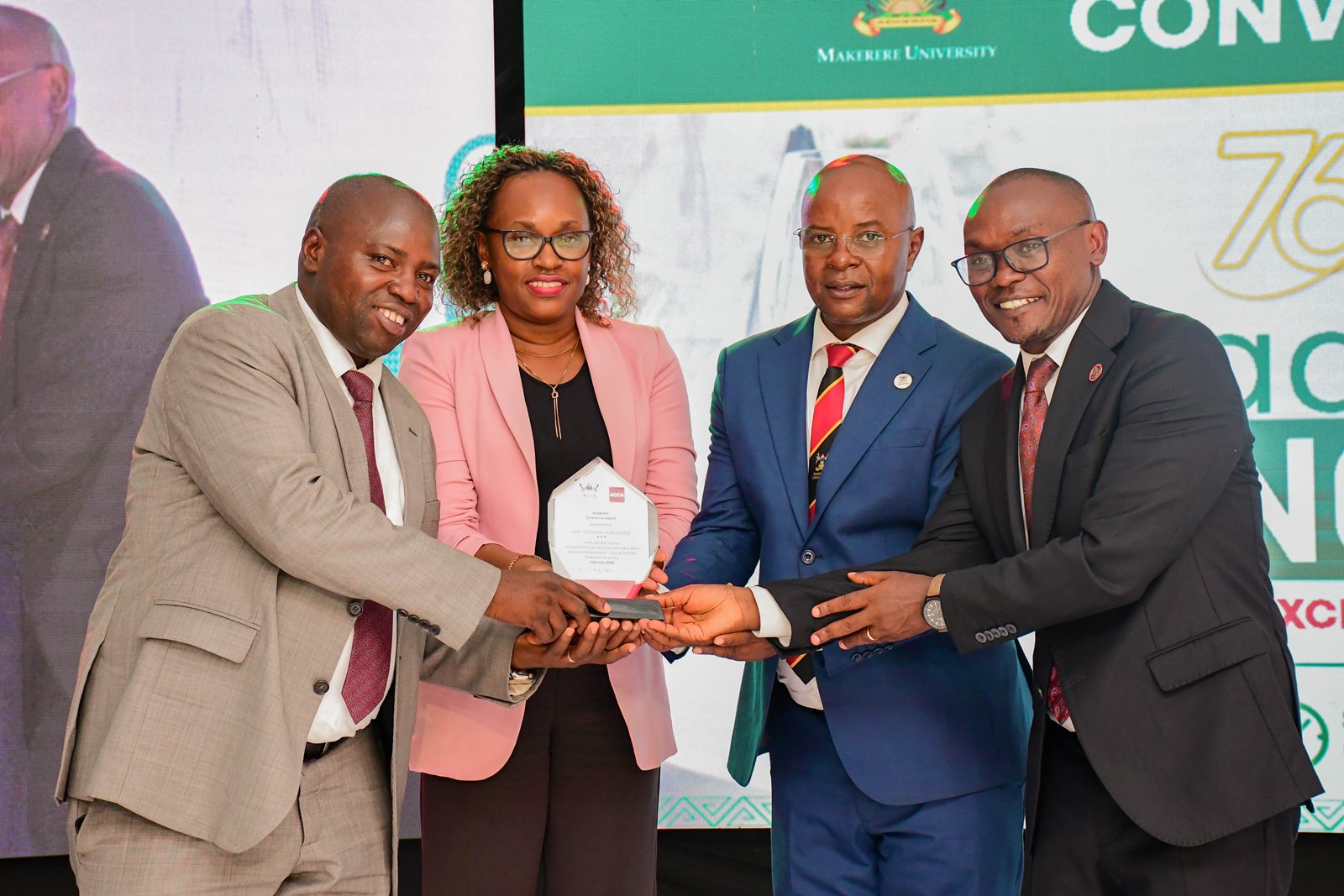
Prudential Uganda-Actuarial Science Award
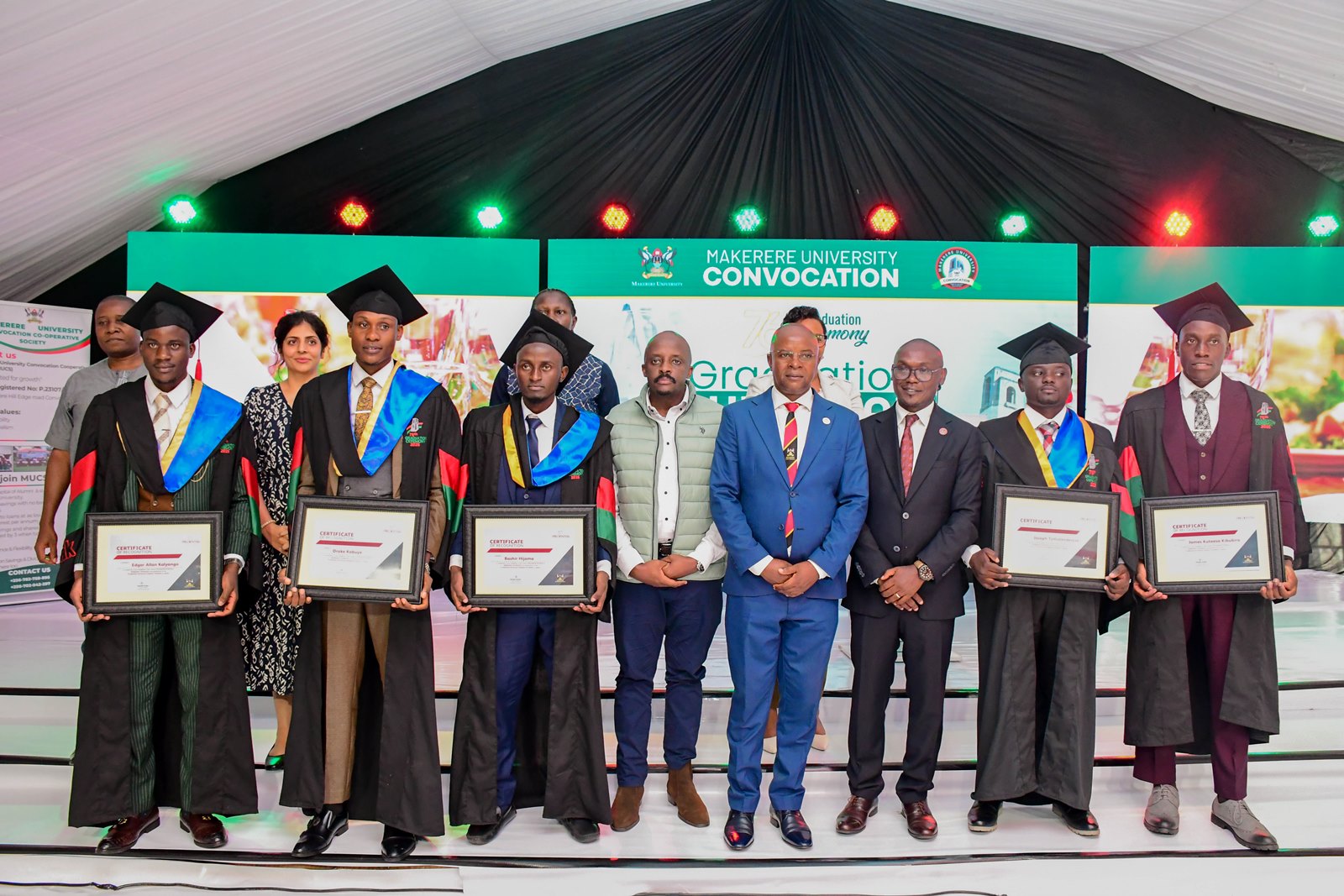
Celebrating academic excellence, Prudential Uganda recognized the fourth cohort of outstanding actuarial science graduates under the Prudential Actuarial Science Support Scheme (PASS). The initiative reflects Prudential’s long-term commitment to building local actuarial expertise and strengthening Uganda’s financial services sector for generations to come.
The top five graduates of Bachelor of Science in Actuarial Science who received the PASS awards included: Drake Kabuye, Edgar Allan Kalyango, Kuteesa Kikubira James, Tumutendereze Joseph, and Bashir Hijoma. These were honored for their outstanding academic performance and commitment to actuarial career. Through PASS, Prudential Uganda provides high-potential graduates with mentorship, internship opportunities, and guidance toward globally recognized actuarial qualifications.
Commenting on the milestone, Tetteh Ayitevie, CEO of Prudential Uganda, said that investing in actuarial talent is critical to building a resilient and sustainable financial services industry. He noted that actuaries play a central role in risk management, pricing, product development, and long-term financial planning, making their contribution vital to the growth of Uganda’s insurance sector.
Prof. Edward Bbaale, the Principal, College of Business and Management Sciences, applauded Prudential Uganda for its ongoing support, highlighting that programmes such as PASS inspire students to excel academically while preparing them for the realities and demands of the actuarial profession.
EPRC Young Professional Award
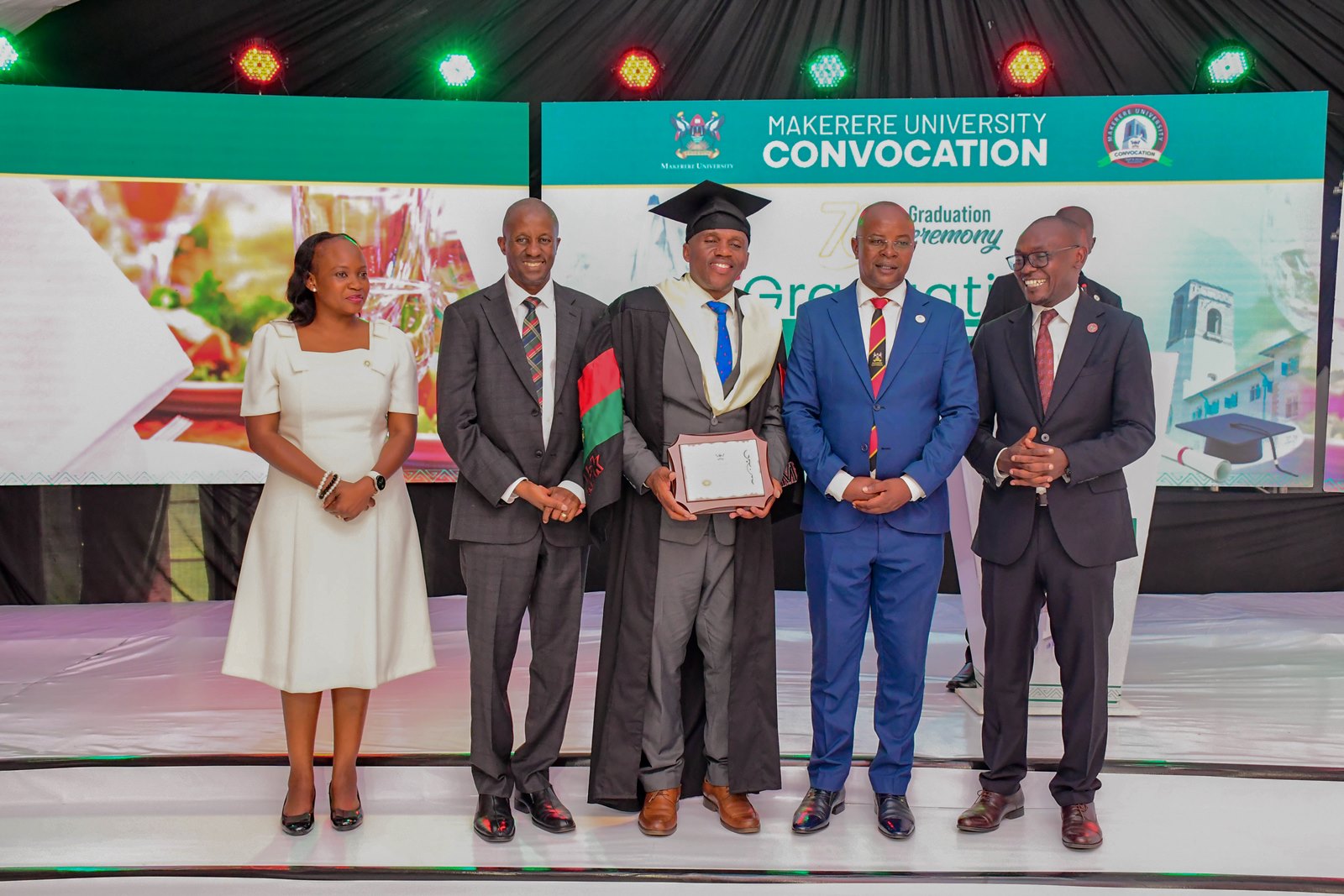
Recognizing excellence, EPRC presented the Young Professional award to Emmanuel Menya, the best Master of Arts in Economics graduate. The award includes a two-year employment contract. Ibrahim Kasirye, the Director of Research at EPRC presented the award on behalf of Dr. Sarah Ssewanyana, the Executive Director.
The EPRC Young Professional Award, recognizes and celebrates exemplary performance. The award underscores the importance of nurturing young professionals who exhibit excellence, innovation, and a strong commitment to national development.
Significance of the Award ceremony
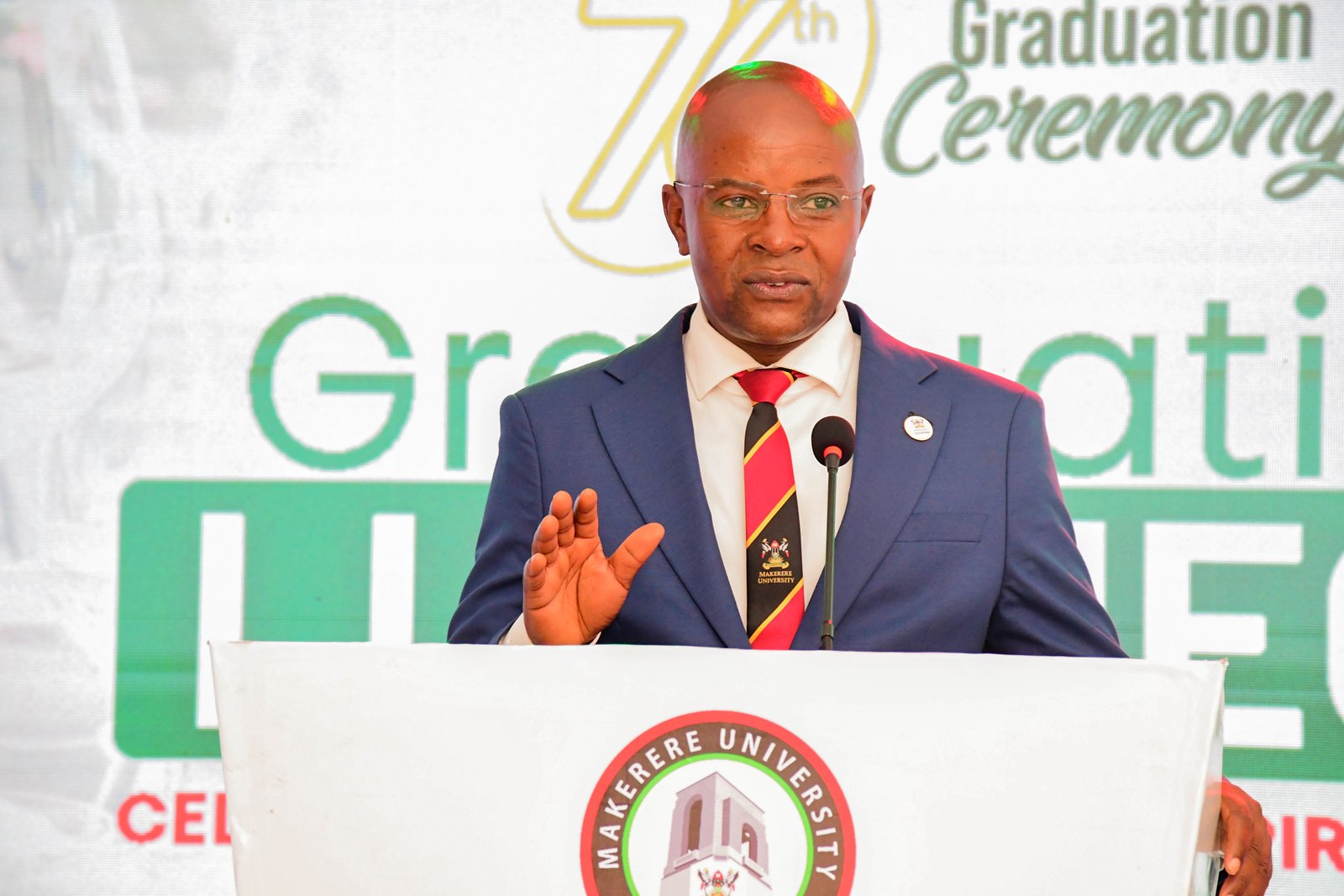
Prof. Edward Bbaale, Principal of College of Business and Management Sciences (CoBAMS), underscored the significance of the ceremony, noting that it served three key purposes: to recognize academic excellence among students, to honor faculty members excelling in teaching, research, and service, and to celebrate Prof. John Ddumba-Ssentamu, former Vice-Chancellor of Makerere University, for his continued contribution to scholarship through authorship.
Prof. Bbaale described Prof. Ddumba-Ssentamu’s ongoing scholarly work as inspirational, stating that it demonstrates a steadfast commitment to knowledge creation beyond leadership roles. He commended both students and staff for their hard work and discipline, emphasizing that university success is a shared achievement.
Collaboration, Responsibility, and Excellence
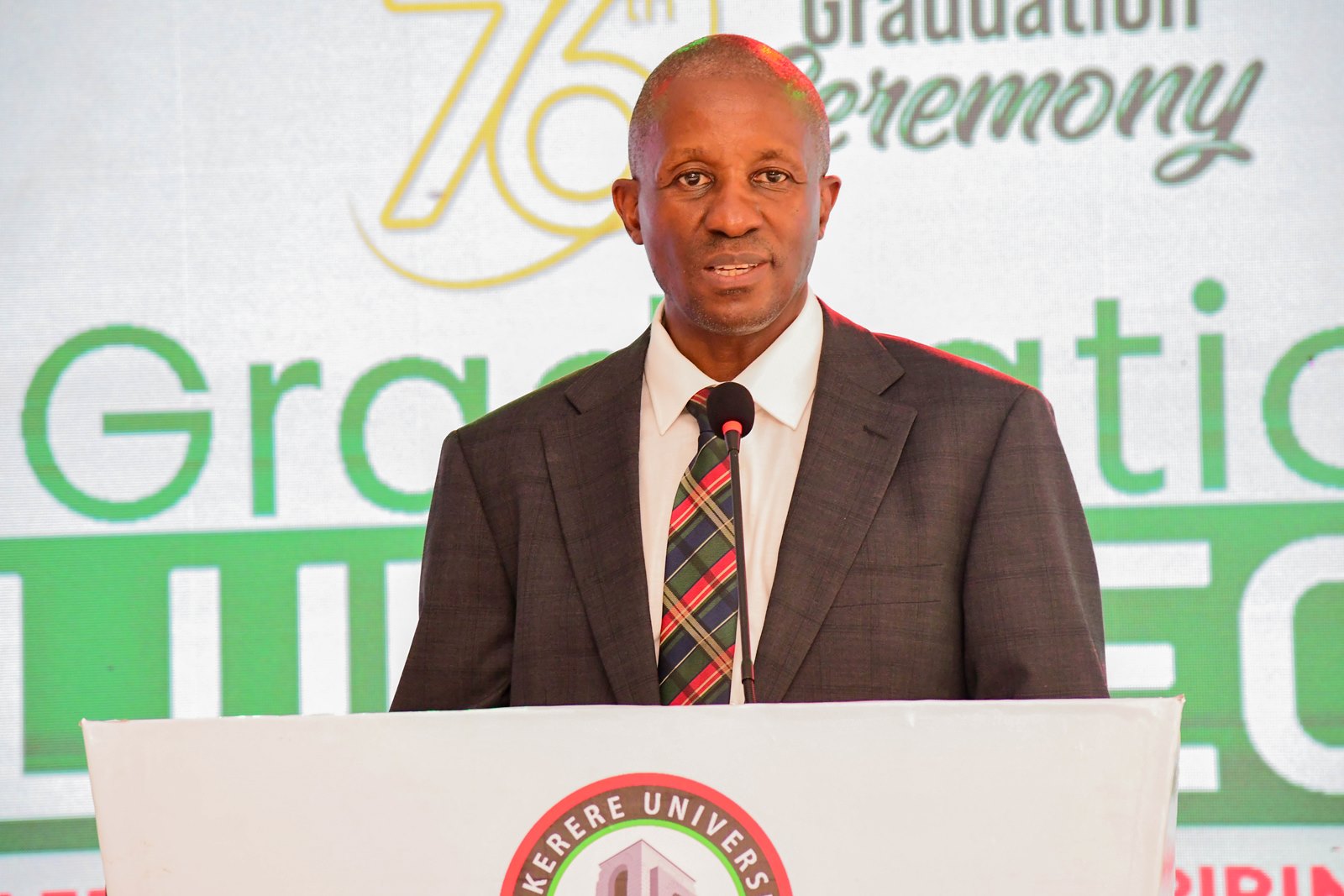
Congratulating the awardees, the Principal of Makerere University Business School (MUBS), Prof. Moses Muhwezi, reminded graduates that being a product of Makerere University is both a privilege and a responsibility.
“Uphold the university’s internationally respected brand, defend it, and take pride in it, while maintaining unity and avoiding internal conflicts that could harm its reputation,” he urged. The Principal of MUBS encouraged graduates to remain committed, diligent, and focused in their pursuit of excellence.
Highlights about Makerere University Convocation
CPA George Mugabi Turyamureeba, Chairperson of the Makerere University Convocation, informed the audience, that the Convocation is a legally established and influential platform for alumni and staff.
Rallying alumni and staff to join Makerere University Convocation, CPA Turyamureeba outlined the achievements and ongoing activities. He reported that during his tenure, the Convocation Executive, had expanded and beautified the permanent home for the Convocation. Some of the ongoing activities include: strengthening alumni engagement, introduction of a cross-generational mentorship program, and the formation of a cooperative society (SACCO) aimed at providing affordable loans and potentially establishing a bank.
He tipped the fresh graduates on resilience, continuous self-improvement, and lifelong learning, stressing the importance of staying connected to their alma mater and the Makerere University Convocation community.
He cautioned the graduates on emerging fraud risks, including digital scams, and fraudulent job offers. He urged them to safeguard their personal information, uphold integrity, and avoid becoming either victims or perpetrators of fraud.
Trending
-

 General3 hours ago
General3 hours agoCall for Applications: Diploma Holders under Government Sponsorship 2026/2027
-

 Humanities & Social Sciences1 week ago
Humanities & Social Sciences1 week agoMeet Najjuka Whitney, The Girl Who Missed Law and Found Her Voice
-

 General2 hours ago
General2 hours agoAdvert: Admissions for Diploma/Degree Holders under Private Sponsorship 2026/27
-

 General1 week ago
General1 week ago76th Graduation Highlights
-

 Agriculture & Environment2 weeks ago
Agriculture & Environment2 weeks agoUganda Martyrs Namugongo Students Turn Organic Waste into Soap in an Innovative School Project on Sustainable Waste Management